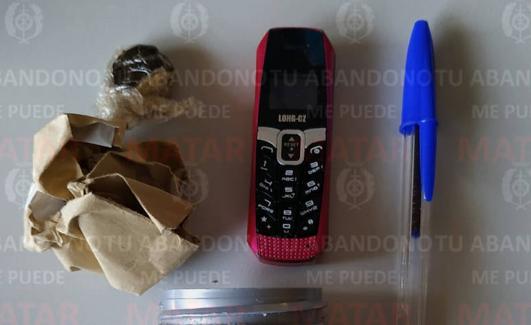PRISON guards in Spain have warned that mini phones being smuggled into prisons are allowing criminals to continue their work behind bars.
The devices, measuring as small as a big toe or finger, are brazenly being sold on Facebook as ‘phones for prisoners’.
The plastic phones work with a micro SIM card and have a USB port for charging and in some cases even a wireless ear piece.
An association of prison workers has denounced the devices, claiming they are almost impossible to detect, especially in environments where guards are overworked.
The mini phones, which were banned in the UK in 2017, are brought into the prisons during visitation days.
While some are smuggled inside deodorant cans, slippers or baby diapers, the majority are put inside a condom and placed in the rectum of a visitor.
Late last year an X-ray of a prisoner in Huelva, who had been transferred from a jail in Sevilla, was also hiding his phone inside him.
The phones measure 7cm or smaller and make no noise.
They can cost around €30 outside of prison before being sold on for around €200 once inside.
Officials are seizing around 10 mini phones a week but say they are very difficult to find.
“Prisoners can wear hoodies and hide their ear piece or can make a call while inside their cells before easily hiding the tiny device if they hear a guard coming,” the association of prison workers said in a statement.
They warned that the most common use of the mini mobiles is for drug kingpins to carry on running their businesses on the outside.
But they are also being used for indoctrinating inmates into jihadi terrorism, the workers claimed.
Other criminals use the phones to continue threatening their gender violence victims.
Meanwhile, according to the guards, inmates may notify family members or colleagues of when they will be transferred and where to.
“This is a great danger because they can attack vehicles when they are going to be transferred,” the group warned.
The workers are calling for more personnel to help tackle the influx of the devices.











